Appropriating Laughter
What Do You Mean, I’m Funny?
Outrage is contagious. A week or so ago, Don Aucoin decried “inappropriate” laughter in the Boston Globe, which I read because several of my Facebook friends were outraged enough to preempt their regularly-scheduled outrage at white-male programming in theatre seasons to repost his article in an effort to outrage people like me.
There’s a particular flavor of Puritanical New England outrage that alternately confuses and embarrasses me. It’s as if I’m in an unfamiliar country, where the codes of behavior are invisible but enforced with righteous violence. I once got a coffee at an intermission at the Huntington, and when I came back to my seat I was cursed at by the middle-aged women in my row for making them stand in the aisle too long. Of the countless humiliations I’ve had to endure in the theatre, one of the most personal and direct was knowing that my greatest impact on subscribers might have been as an audience member.
As an audience member and as a practitioner, I’m worried theatre has already begun to take its place with the concert hall and the opera house as a venue for a classy special occasion.
Mr. Aucoin is also concerned with the way audience members treat each other. In his piece for the Globe, he qualifies laughter not only as “inappropriate,” but also as “misguided” and “baffling” and describes one performance as “laughter-marred.” Again, this is like a foreign land for me. When I lived in Chicago, a theatre town whose history and relationship with the audience has often been one of contentious equals, there was a woman named Connie, who wore thick glasses and compulsively attended shows, usually with a shopping bag or two stuffed with old programs. She always sat in the front row, but didn’t make eye contact, and even though she didn’t seem to be watching the show, she’d always bark with laughter at a weird point in the play. It was distracting and annoying and yet we all knew it was good luck for her to be at opening night and we loved her and she had free tickets for life.
Underappreciated songwriter Robbie Fulks has a powerful and dark song called “God Isn’t Real.” As he sang these lyrics at a recent show in Cambridge, I wept and a lot of people in the audience laughed:
Go ask the starving millions under Stalin’s cold reign
Go ask the child with cancer who eases her pain
And go to your churches if that’s how you feel
But don’t ask me to follow, for God isn’t real.
Were my tears inappropriate, or was their laughter?
Annie Baker said in a recent interview she’s uncomfortable when everyone in the audience laughs at the same time, because it likely means she sold out the integrity of her characters’ behavior for a punch line. Ms. Baker loves the random, scattered, and often awkward laughter that frequently attends her hyper-realistic plays and which is by its nature a private response made suddenly, uncontrollably public.
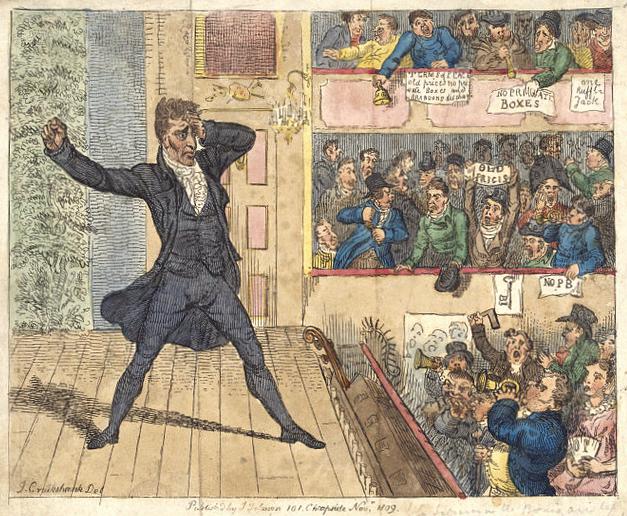
Some of the most beautiful combinations of words in the English language were first spoken aloud before an unruly mob of drunken Elizabethans. People used to applaud between movements of symphonies, which is today considered a barbarity. But composers of the 18th and 19th century aimed for the visceral. Mozart was so thrilled with the premiere of the “Paris” Symphony, which was twice interrupted by applause (for the boisterous parts) and shushing (for the delicate parts) that he bought himself a celebratory ice cream. Alex Ross’ brief but engaging history of the “No-Applause” movement lays some of the blame on that consummate control-freak Wagner, or at least the Wagnerians, whose reverence for the work superseded a physical expression of it. Celebrity conductors like Stokowski and Toscanini brought that practice to the US. And audiences learned to suspend whatever impulsive reactions they had in order to properly appreciate the work.
When we’re talking about appropriate reactions, we’re also talking about class. Ross writes that “some time around 1900 the concert hall began to take on a peculiar social burden. In America, especially, members of the upper and middle classes embraced the symphony orchestra as a faux-European bastion in a world of vulgar commerce.” This movement extended to the cinema as well. Immigrant and black audiences were educated by social reformers about the “proper” reactions to have while attending films and other public events. One of D.W. Griffith’s early films is a satire about women ruining the cinematic experience with their enormous hats, the 1900s version of a glowing cell phone.
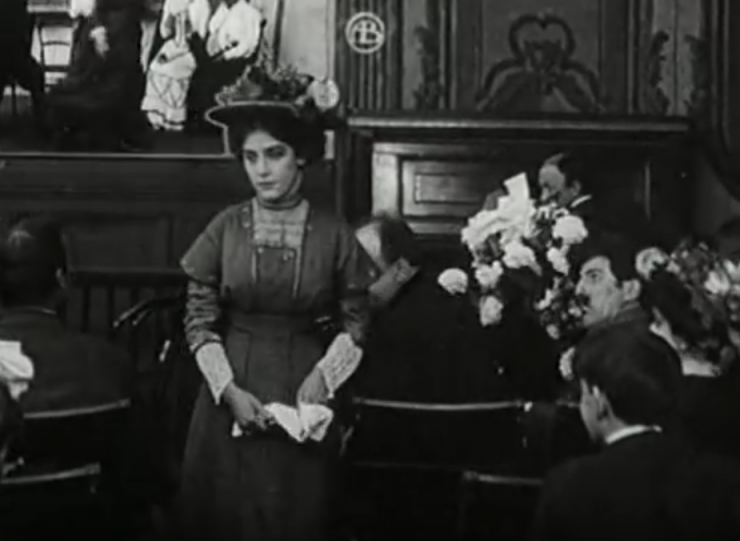
This is all to say that audiences have been obnoxious for centuries. Mr. Aucoin traces the current strain of audience disrespect to digital culture: “The rise of the selfie has encouraged us to consider ourselves the star of every occasion. YouTube has enabled spectators to fancy themselves as performers.” Would that were true. Any theatre that drew in enough Millennials to make a dent in the current demographic would have a bronzed bust of its Marketing Director in the lobby.
As an audience member and as a practitioner, I’m worried theatre has already begun to take its place with the concert hall and the opera house as a venue for a classy special occasion. We can respectfully watch art from a distance once we’ve attained the proper decorum and degree of expendable income. It’s becoming a luxury item.
Of course Mr. Aucoin’s piece comes from a deep reverence for the theatre, and a respect for actors. He doesn’t want the magic to be broken. I don’t either. But there are different kinds of magic, and the unaccountable sparks that fly between audiences and performers sets off one of my favorite kinds: random, insistent, uncontrollable—in short, impolite.

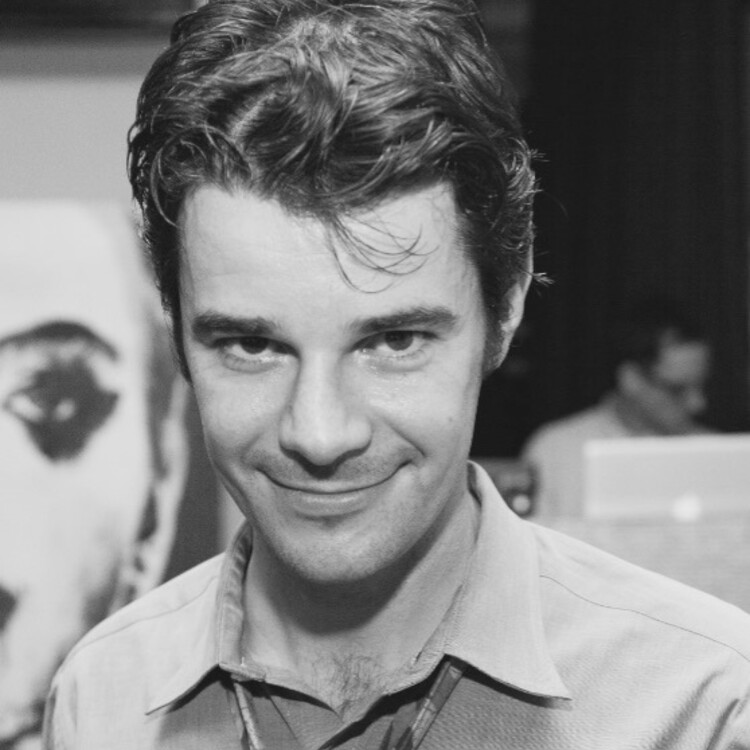
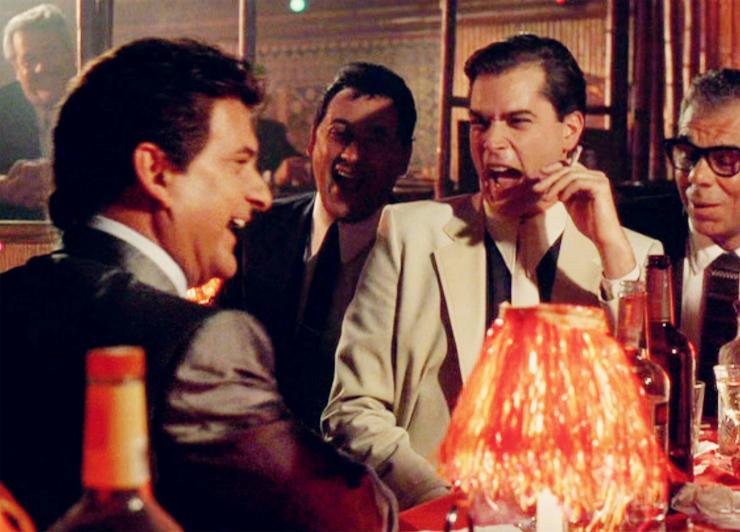
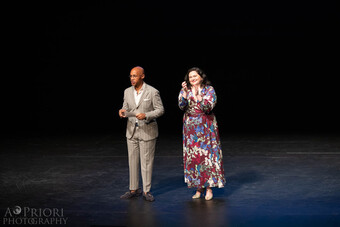








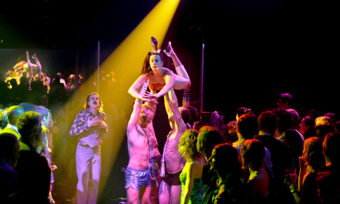

Comments
The article is just the start of the conversation—we want to know what you think about this subject, too! HowlRound is a space for knowledge-sharing, and we welcome spirited, thoughtful, and on-topic dialogue. Find our full comments policy here